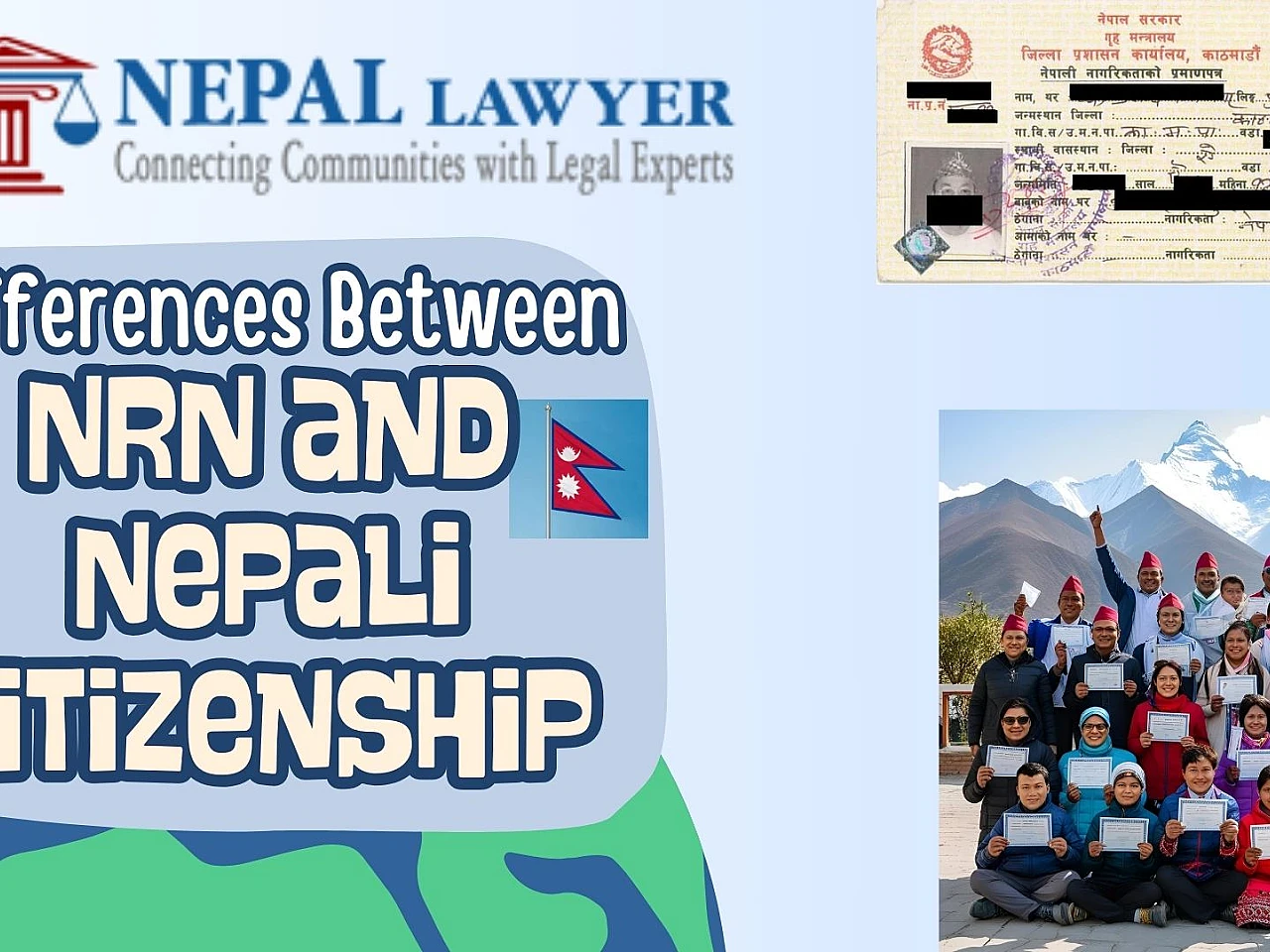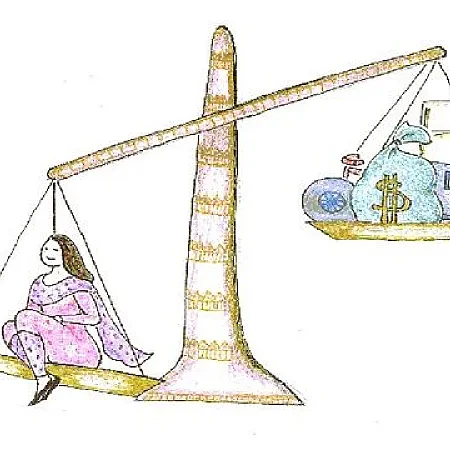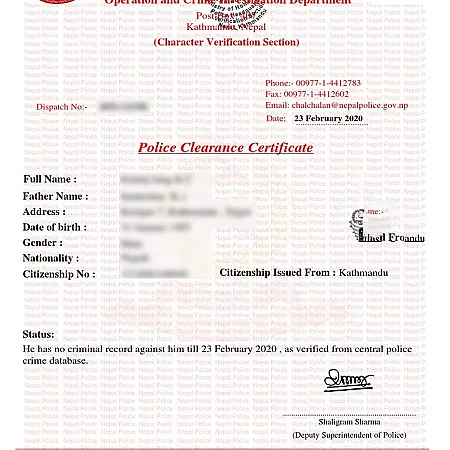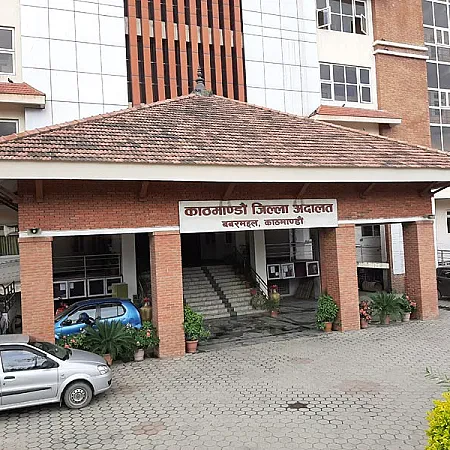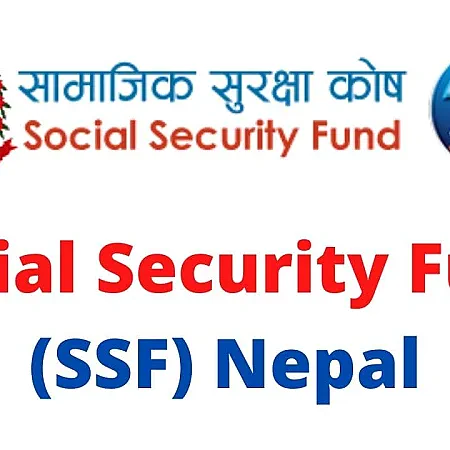Introduction
Nepal lies in the northeast of the Himalayas. It has a unique citizenship structure, resident Nepalis, and provisions for those living abroad. The concepts of Nepali citizenship and Non-Resident Nepali (NRN) citizenship are measures to adapt Nepal yet retain its constitutional identity in the face of global migration trends. This blog shall attempt to outline the salient differences between the two categories of citizenship, examine Nepal's constitutional framework, and discuss pertinent laws and recent amendments that have impacted the nation's citizenship policies.
What is Nepali Citizenship?
Nepali citizenship is the complete legal status awarded to citizens of Nepal. It elaborates more on the rights and privileges mentioned in the Constitution of Nepal. Nepali citizens have all the constitutional protections, including the right to vote, unrestricted property ownership, and public office candidature.
How to Obtain Nepali Citizenship
The Constitution of Nepal recognizes the following methods of acquiring citizenship:
- By Descent: Children born to Nepali citizen parents automatically qualify for citizenship.
- By Birth: Individuals born in Nepal before April 13, 1990, whose parents' identity is unknown.
- By Naturalization: Foreign nationals who have legally resided in Nepal for at least 15 years.
- Through Marriage: Foreign women married to Nepali men can apply for citizenship after renouncing their foreign citizenship.
Rights of Nepali Citizens
Nepali citizens enjoy several constitutional rights, including:
- The right to vote in all elections
- The right to hold any public office
- Unrestricted property ownership throughout Nepal
- Full protection under Nepali law
- Access to all government services and benefits
Key Citizenship Laws in Nepal
Nepal Citizenship Act, 2063 (2006)
This foundational law governs citizenship matters and outlines:
- Procedures for obtaining citizenship by descent, birth, and naturalization
- Documentation requirements for citizenship applications
- Provisions for citizenship certificates
- Conditions under which citizenship may be terminated
Nepal Citizenship Rules, 2063 (2006)
These rules provide detailed procedures for implementing the Citizenship Act, including:
- Application processes
- Required documentation
- Verification procedures
- Appeal processes for denied applications
Recent Amendments to the Citizenship
In 2023, the Citizenship Amendment Bill got President Ram Chandra Poudel’s approval and made several crucial changes in the citizenship system of Nepal:
- Children of Nepali Mother: The Constitution has worded it as ‘naturalized children of a Nepali mother’): The daughter/son of Nepali mother will now have easy access to citizenship even if she/he does not know who his/her father is or if the father is a foreigner.
- Nepali citizenship and the NRNs: The amendment have further clarified and liberalized the rights for NRNs with respect to economic opportunities, but kept it limited when it comes to political rights.
- Naturalization Timeframe: The time period for naturalization through marriage was reduced in some cases.
- Documentation: The amendment revised documentation requirements, making the process more user friendly.
What is NRN Citizenship?
Non-Resident Nepali (NRN) citizenship, more accurately described as "Non-Resident Nepali Status," is a special category created for people of Nepali origin who have acquired foreign citizenship. This status acknowledges their Nepali heritage while recognizing their primary citizenship elsewhere.
Eligibility for NRN Status
The Non-Resident Nepali Act defines eligibility for NRN status as:
- Former Nepali citizens who have acquired foreign citizenship
- Foreign citizens of Nepali origin (having ancestral ties to Nepal)
- Foreign citizens who have resided in SAARC countries excluding Nepal
Rights and Limitations of NRN Status
NRN status holders enjoy certain privileges but with limitations:
- Can own and invest in residential and business properties
- Can participate in economic activities in Nepal
- Cannot vote in Nepali elections
- Cannot hold political office
- Have restricted land ownership rights compared to full citizens
The Non-Resident Nepali Act and Its Amendments
Non-Resident Nepali Act, 2064 (2008)
This landmark legislation officially recognized the special status of Non-Resident Nepalis and established:
- Legal definition of an NRN
- Process for obtaining NRN cards
- Economic rights for NRNs
- Limitations on political participation
Amendment by President Ram Chandra Paudel (2023)
President Paudel's authentication of amendments to the NRN Act included several significant changes:
- Expanded Investment Rights: NRNs received enhanced rights to invest in sectors previously restricted to full citizens.
- Property Ownership: The amendment increased the amount of land NRNs can own for residential and business purposes.
- Simplified Registration: The process for obtaining and renewing NRN cards was streamlined.
- Generational Transfer: The amendment clarified provisions for passing NRN status to descendants of current NRN card holders.
- Tax Benefits: Special tax provisions were introduced for NRN investments in priority sectors.
Key Differences Between NRN and Nepali Citizenship
|
Aspect |
Nepali Citizenship |
NRN Status |
|
Political Rights |
Full voting and office-holding rights |
No voting or office-holding rights |
|
Property Ownership |
Unrestricted throughout Nepal |
Limited to certain types and areas |
|
Duration of Stay |
Unlimited |
No restrictions on visits |
|
Passport |
Entitled to Nepali passport |
Use foreign passport with NRN card |
|
Government Services |
Full access |
Limited access |
|
Tax Treatment |
Standard resident taxation |
Special provisions for investments |
|
Legal Protections |
Complete constitutional protection |
Limited constitutional recognition |
Nepal's Constitutional Framework
Type of Constitution in Nepal
Nepal operates under a federal democratic republican system with a written constitution. The Constitution of Nepal, promulgated on September 20, 2015, established Nepal as:
- Federal Democratic Republic: The country is divided into seven provinces with both central and provincial governments sharing power.
- Parliamentary Democracy: The governmental system functions through a parliamentary framework.
- Secular State: The constitution declares Nepal as a secular nation respecting religious freedom.
- Inclusive Representation: The constitution emphasizes proportional representation of all communities.
Constitutional Provisions on Citizenship
The Constitution of Nepal dedicates Part 2 (Articles 10-15) to citizenship matters. These articles outline:
- Types of citizenship (by descent, naturalization, etc.)
- Conditions for acquiring and terminating citizenship
- Special provisions for NRNs
- Gender equality aspects in citizenship transmission
The NRN Movement and Its Impact
The concept of NRN status emerged from the Non-Resident Nepali movement, which advocated for maintaining connections between Nepal and its global diaspora. This movement led to the Non-Resident Nepali Act of 2008, which formalized the status and rights of NRNs.
Legal Challenges and Court Decisions
Several Supreme Court decisions have shaped citizenship laws in Nepal:
- Sabina Damai v. Government of Nepal (2011): This landmark case established that citizenship by descent must be accessible through both maternal and paternal lineage.
- Suman Panta v. Ministry of Home Affairs (2017): The Court ruled that administrative barriers to citizenship applications were unconstitutional.
- NRN Association v. Government of Nepal (2019): This case led to expanded recognition of NRN economic rights.
Frequently Asked Questions
Can a person hold both Nepali citizenship and NRN status simultaneously?
- No, these are mutually exclusive. Once a Nepali citizen acquires foreign citizenship, they automatically lose their Nepali citizenship and can then apply for NRN status.
How long does it take to process an NRN card application?
- Typically, NRN card processing takes 13 months depending on document verification and administrative procedures.
Can NRN status holders work in Nepal without additional permits?
- Yes, NRN card holders can work and conduct business in Nepal without requiring separate work permits.
Are children of NRNs eligible for Nepali citizenship?
- Children of NRNs are not automatically eligible for Nepali citizenship unless they meet other constitutional criteria for citizenship.
How has the 2023 amendment changed citizenship acquisition for children of Nepali mothers?
- The amendment has simplified the process, allowing children of Nepali mothers to acquire citizenship by descent even when the father's identity is unknown or he is not a Nepali citizen.
What specific property rights do NRNs have under the new amendments?
- NRNs can now own up to 10 ropani (approximately 0.5 hectares) of land in urban areas and up to 30 ropani (approximately 1.5 hectares) in rural areas for residential and business purposes.
Is dual citizenship allowed in Nepal?
No, Nepal's constitution does not currently recognize dual citizenship. The NRN status is the alternative provided to those who have acquired foreign citizenship.
What documents are required for NRN card application?
Applicants typically need proof of former Nepali citizenship or heritage, current foreign citizenship documents, and passport-sized photographs.
Conclusion
The Nepali citizenship vs NRN issue in itself reveals the dilemma that Nepal has been walking between preserving its sovereignty & assuring its global diaspora. The powers conferred by the recent amendments promulgated by President Ram Chandra Paudel represent substantial shifts to Nepal's citizenship laws especially for Non-Resident Nepalis and children of mothers born in Nepal. Full citizenship provides the most complete set of rights in-country, NRN status is something to which many have become quite attached since it allows one a stake in the lives abroad, they have labored so hard to build. The way Nepal handles its citizenship is gradually being improved in line with a changing global migration pattern, that grant more rights for NRNs and maintain constitutional high status of full citizenship for it. For Nepalis here inside borders (and outside), these distinctions are critical as they manage their status within and outside of the country
